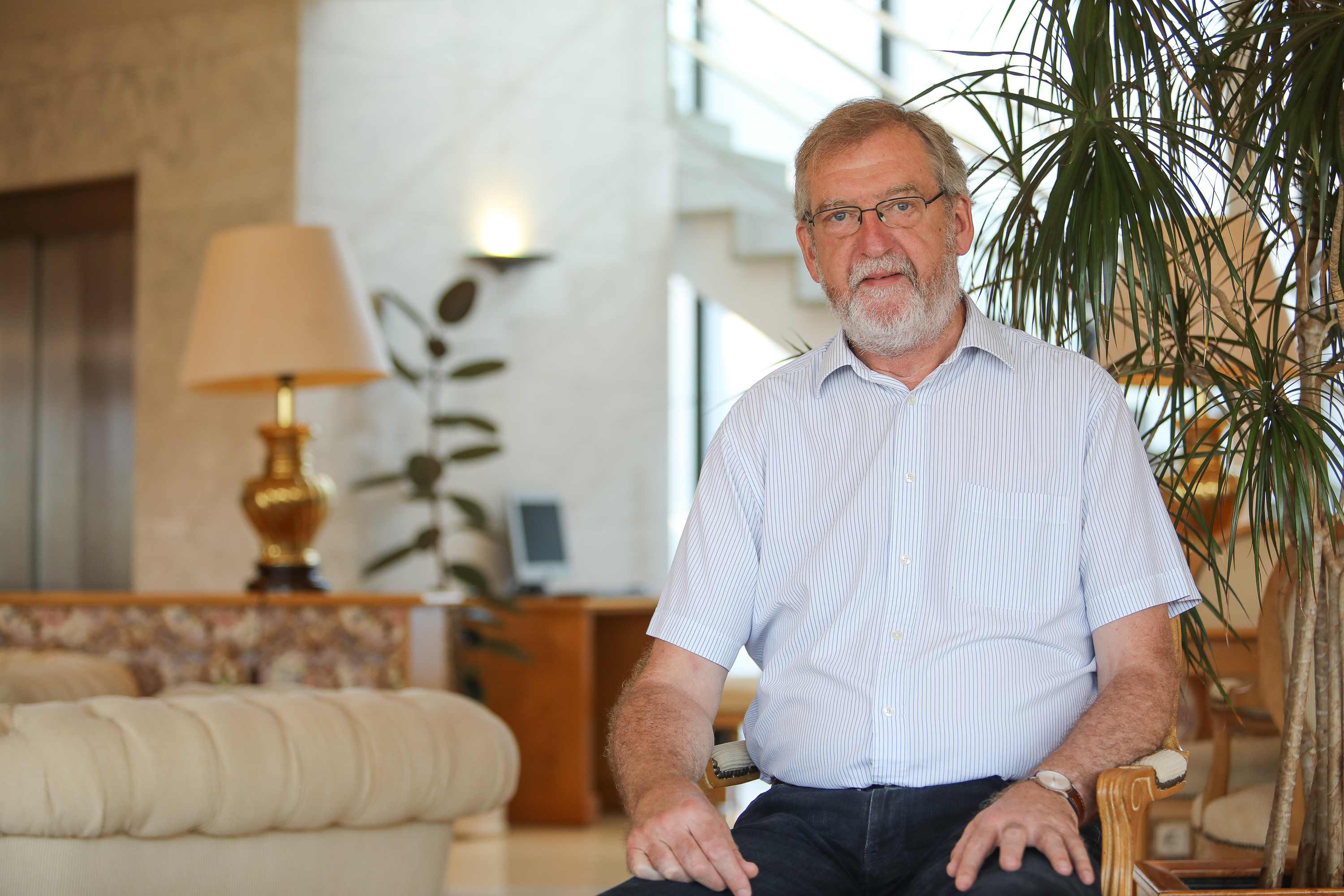Collective residencies / THE FUTURE OF CULTURAL INSTITUTIONS / Olot
BILL RICHARDSON
From Thursday, 19 September 2019 to Thursday, 3 October 2019

Bio
Bill Richardson is Emeritus Professor in Spanish at the National University of Ireland Galway. He has published books and articles on Spanish and Latin American literature and culture, as well as on Translation and Linguistics. He is a specialist in the work of the Argentinean writer, Jorge Luis Borges, and an expert on literary spatiality; in 2012, he published the book Borges and Space (Peter Lang). He is one of the joint authors of Contemporary Spain (Routledge, 2016), and co-editor of Spaces of Longing and Belonging: Territoriality, Ideology and Creative Identity in Literature and Film (Brill, 2019).
Project
During my Faber residency, I will continue to work on a project in which I examine what the writings of the great twentieth-century author, Jorge Luis Borges, can teach us about the role of the librarian in the modern world. Borges worked as a librarian and was for some time Director of the National Library of Argentina. His stories and other writings explore issues of relevance to our understanding of how libraries work and underlying questions around the nature and location of knowledge and the meaning of books and writing. I look forward to exploring these topics in the company of others with similar interests at Olot.
Opening Doors to Cultural Institutions
When I came to Olot to take up the Faber Residency, I had a clear idea about what I wanted to reflect on and write about and had made some progress on the topic. This was the link between the life and work of the author Jorge Luis Borges and the institution of the library, since Borges not only wrote about libraries but worked for some 36 years as a librarian, first in a small municipal library and then as Director of the National Library of Argentina.
Participating in the Thematic Residency on The Future of Cultural Institutions provided me with the time and space, and the appropriate environment, to write about and reflect on this topic in depth, furthering my understanding of the wide range of ideas I had about this general topic. The fact that there were other colleagues participating in the residency meant that we all got the opportunity to present our own topic and to have an in-depth discussion of it. I believe this was of great benefit to all of us, since not only did explaining our topic help to clarify our ideas, but the various insights offered by colleagues added new material to our thinking and opened up new avenues of relevant exploration for us. As a group, I believe we were open and supportive to each other, and we listened carefully and respectfully, offering both encouragement and advice as appropriate. I am confident that we will continue to support each other by being in touch in future and that we will remain friends and colleagues with an interest in each other’s work. In my own case, meeting with professionals who were experts in museum studies and related areas was enormously beneficial, as it enabled me to probe, with them, questions about the epistemological, social and political issues associated with the role played by cultural institutions such as libraries, archives, museums and public parks in the contemporary world. I come away from the Residency with a greatly enriched understanding of my own project, new knowledge about related fields of study, warm memories of the pleasant and insightful conversations held with other participants and a desire to return again to this lovely part of the world.
